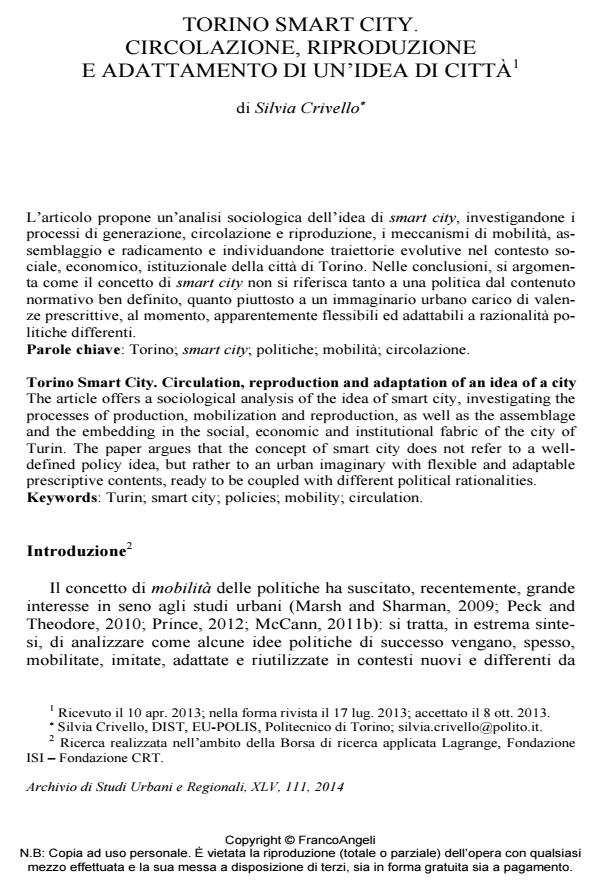Torino Smart City. Circulation, reproduction and adaptation of an idea of a city
Journal title ARCHIVIO DI STUDI URBANI E REGIONALI
Author/s Silvia Crivello
Publishing Year 2015 Issue 2014/111
Language Italian Pages 17 P. 32-48 File size 97 KB
DOI 10.3280/ASUR2014-111002
DOI is like a bar code for intellectual property: to have more infomation
click here
Below, you can see the article first page
If you want to buy this article in PDF format, you can do it, following the instructions to buy download credits

FrancoAngeli is member of Publishers International Linking Association, Inc (PILA), a not-for-profit association which run the CrossRef service enabling links to and from online scholarly content.
The article offers a sociological analysis of the idea of smart city, investigating the processes of production, mobilization and reproduction, as well as the assemblage and the embedding in the social, economic and institutional fabric of the city of Turin. The paper argues that the concept of smart city does not refer to a welldefined policy idea, but rather to an urban imaginary with flexible and adaptable prescriptive contents, ready to be coupled with different political rationalities.
Keywords: Turin; smart city; policies; mobility; circulation
- Smart city e adattamento ai cambiamenti climatici: i casi Genova e Copenhagen a confronto Samantha Cenere, in ARCHIVIO DI STUDI URBANI E REGIONALI 118/2017 pp.141
DOI: 10.3280/ASUR2017-118007
Silvia Crivello, Torino smart city. Circolazione, riproduzione e adattamento di un’idea di città in "ARCHIVIO DI STUDI URBANI E REGIONALI" 111/2014, pp 32-48, DOI: 10.3280/ASUR2014-111002